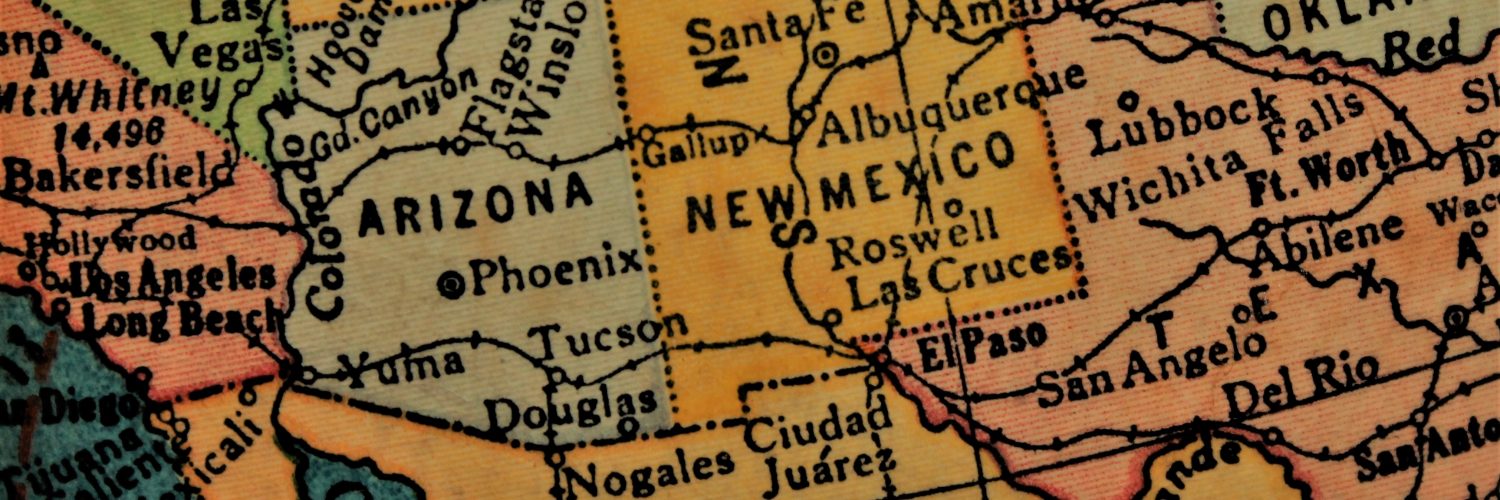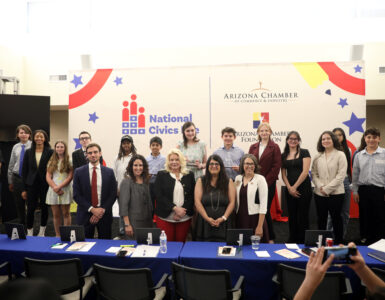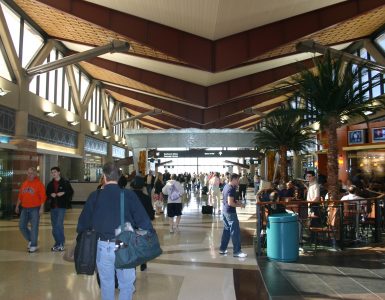A measure to allow approved visitors from Mexico to travel throughout Arizona without additional documentation, instead of a mere 25 to 75 miles from the border under current law, is making its way through both houses of the U.S. Congress.
The bill, called the Southwest Tourism Expansion Act, is receiving substantial support from local governments, tribal nations, economic groups and most of Arizona’s congressional delegation.
One reason is an estimated $1 billion more expected in spending by tourists from Mexico, Arizona’s top foreign market. Last year, Mexican visitors spent more than $3 billion here.

“Arizona benefits in so many ways from a strong relationship with Mexico — inviting our Mexican neighbors to explore and invest more across our entire state will strengthen those ties,” said Arizona U.S. Representative Greg Stanton, a key sponsor of the bill who has long advocated for the legislation including as the former mayor of Phoenix.
Five-year pilot program
The bill calls for a five-year pilot program to allow Mexican citizens who carry a valid Border Crossing Card (BCC) to travel statewide.
Currently, card holders are only allowed to travel 75 miles from the border from Arizona’s land ports of entry, taking them about as far as Tucson. Traveling beyond that mile marker requires travelers to apply for additional federal documentation at the port of entry. The I-94 form requires a $6 fee. In the Yuma region, travel is even more restricted, with a 25-mile limit for BCC carrying visitors coming through the San Luis port of entry before the I-94 is required.
The Act would allow Mexican nationals with a valid BCC card to go to spring training and visit popular spots like Sedona, the Grand Canyon, Antelope Canyon, Monument Valley, not to mention Greater Phoenix and Flagstaff, but without having to secure the I-94.
Especially important right now
Stanton said the bill is especially important right now when Arizona’s tourism and recreation industries “have taken a catastrophic hit” from the pandemic. The bill would allow for a five-year pilot program to test it out.
“We need to think ahead and be creative about how we will help those sectors rebuild and reach new audiences. This pilot program is a first step in doing so,” Stanton said.
Last week, the bill jumped a major hurdle when it was advanced as part of the House’s Fiscal Year 2021 Department of Homeland Security appropriations bill.
Arizona is “open for business”
Most of Arizona’s congressional delegation are co-sponsors, including Arizona U.S. Senator Martha McSally (R), who introduced the companion bill in the Senate.
“Arizona is open for business and when we allow approved visitors into more areas of our beautiful state, we unleash the potential for greater economic growth, more jobs, and additional sales tax revenue,” Sen. McSally said.
Widespread support
The proposal has strong support from state and local governments, economic groups, the Maricopa and the Arizona , which represents 21 tribal nations.
Mexico top foreign market for Arizona
Mexico is Arizona’s top international market. Last year, Mexican visitors spent more than $3 billion here with 4 million overnight visits, a 5.2 percent increase over 2018, according to the Arizona Office of Tourism.
A University of Arizona study conducted at the request of MAG in 2015 found that expanding the border zone to the entire state could generate up to $181 million in additional spending during the first year. Over the five years, expanded travel for Mexican visitors would generate approximately $905 million.
Requirements for Border Crossing Card
- In order to obtain a BCC, applicants must provide fingerprints, photography, employment information, a security background check, and an in‐person interview.
- The BCC is a B‐1/B‐2 visa issued exclusively to Mexican citizens by the U.S. State Department and includes a radio-frequency-identification (RFID) technology chip.
- Holders of these cards must demonstrate that they have ties to Mexico, including financial, that would compel them to return after a temporary stay in the U.S.
- Penalties for abusing the visa include revocation of the BCC with a fee, as well as losing the privilege for future visa application.
















Add comment